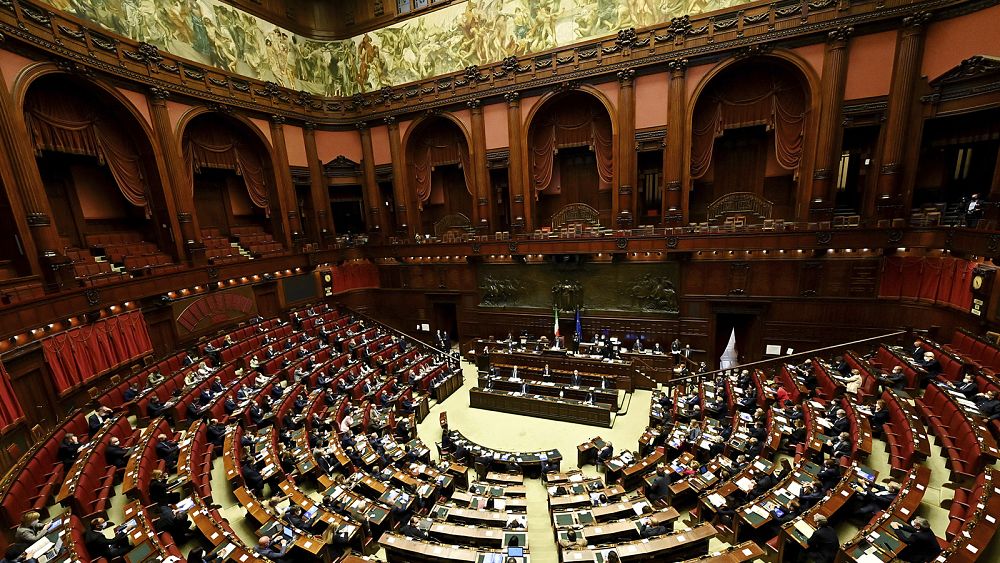
The first round of voting for Italy’s next president and the successor to Sergio Mattarella began Monday, without a clear candidate following three-term ex-prime minister Silvio Berlusconi’s reluctant withdrawal.
The election is set to be an unprecedented affair, with the coronavirus pandemic having a dramatic impact on how the voters — more than a thousand of the country’s lawmakers — will take part.
Due to COVID-19, the elections’ procedures underwent some changes, including a special drive-thru voting area that has been set up in the parliament’s parking lot for electors testing positive or in quarantine.
The 1,009 parliamentarians and special regional representatives will vote for Mattarella’s successor in a secret ballot that might go on for several rounds before a candidate is chosen. The first three rounds require a two-thirds majority. An absolute majority will suffice if the voting continues to the fourth round.
Meanwhile, prime minister Mario Draghi has signaled his willingness to run for the post, but support from parties in the broad pandemic-unity coalition is split over concerns that his move from head of government to head of state would trigger early elections.
The race has intensified after Berlusconi withdrew his controversial candidacy on Saturday, claiming he had enough votes to win but that the country could not afford political divisions.
The 85-year-old has been undergoing tests at a hospital in Milan in recent days, his office confirmed on Sunday.
With its seven-year mandate, Italy’s head of state is a largely ceremonial post, but it also requires political acumen and constitutional knowledge to steer Italy through its not infrequent political crises.
Political parties held internal meetings over the weekend but were keeping names of candidates secret as the vote for Italy’s 13th president also will set the stage for the next political elections, with the current legislative mandate expiring in 2023, as well as the perennial political tussling over new electoral laws that is likely to ensue.
It was looking increasingly likely that the first rounds of votes would be cast as blanks or with made-up names, while behind-the-scenes wrangling continues during the first three rounds when 673 votes are necessary to win.
“At this time, we’re leaning towards a blank ballot,” said Liberi e Uguali MP Federico Fornaro outside Parliament.
Coraggio Italia MP Daniela Ruffino said she had some “preferences” for president.
From Thursday, a candidate can win with an absolute majority of 505 votes.
While no party has officially named Draghi as a candidate, Berlusconi and his right-wing allies oppose his candidacy, largely out of concerns over triggering new elections while the 5-Star Movement is split.
The Democratic Party would like to see him in the job and is reportedly working on a pact with other parties for a replacement PM candidate to allow the current government to continue without fresh elections.
A former professor and head of the European Central Bank, Draghi was tapped as prime minister last year to help steer Italy through the pandemic, helping secure billions in EU funding to relaunch the economy in what was Europe’s first pandemic epicenter.
Draghi has said his role is largely complete, but some want him to stay on as head of government to ensure the funds are properly spent in a country with a poor record of negotiating and managing EU funds.
Italy’s next president will have an important role in acting as a neutral referee among the various parties — as Italy struggles to emerge from the pandemic — and will work to enact reforms to help the recovery and boost economic growth.